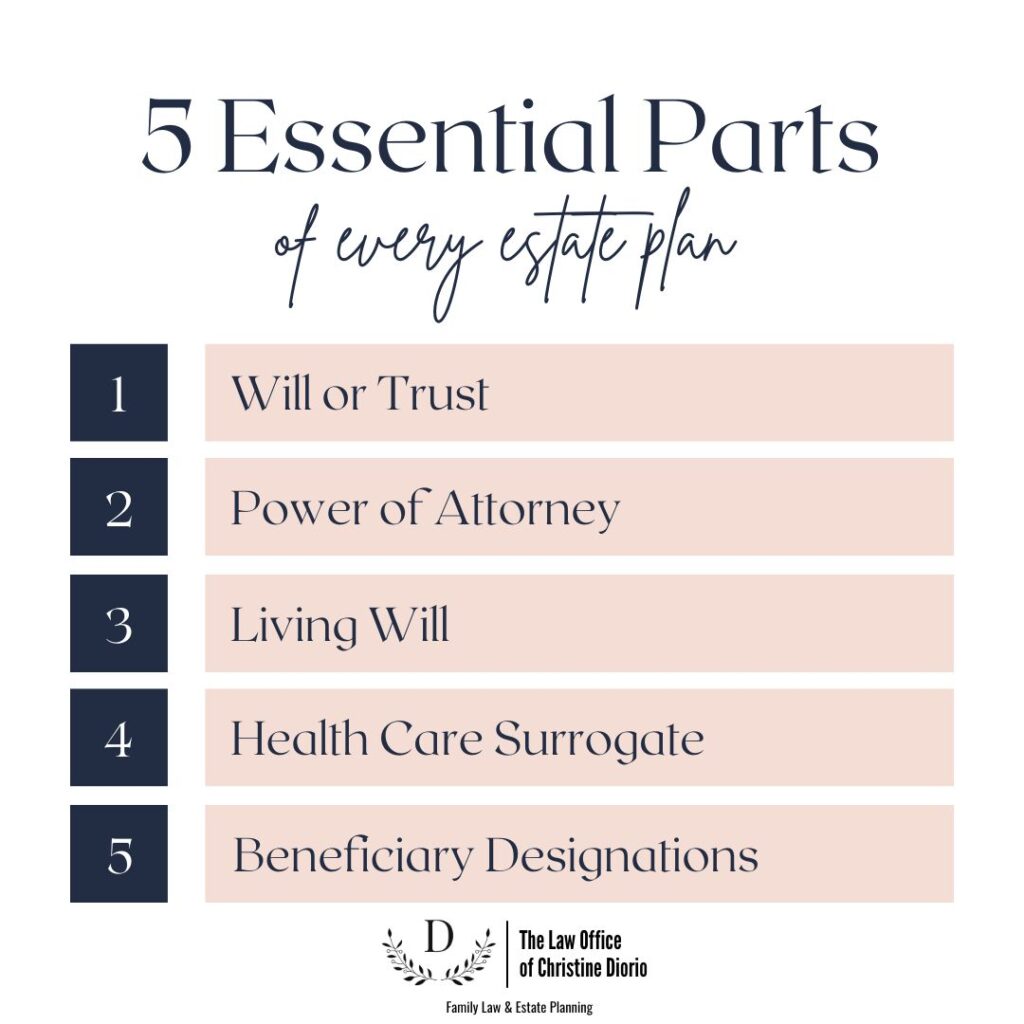The Five Essential Components of Every Estate Plan

Many people assume that a will is all that is needed when it comes to estate planning. This couldn’t be further from the truth. A good estate plan should be designed to avoid probate court, save on taxes, protect your assets, and appoint someone to make medical and financial decisions for you if you become incapacitated. Below is a summary of the 5 essential parts of every estate plan we create in my office.
1. Will or Trust
A will is the most basic estate planning document. It is a set of instructions according to your wishes for how your assets are to be distributed after you die. A Trust is similar in that it is also a set of instructions. However, unlike a will which must go through probate court, a trust will allow your family to avoid the probate process altogether. It also keeps your estate private, whereas a will is made public once you pass. I advise almost all of my clients to consider a trust. While it is more expensive than a will, it will save your family time and money down the road by avoiding probate court. Florida statutes allow for the lawyer who probates your estate to collect up to 3% of your estate as payment. Be wary of lawyers, who try to sell you a cheap will in the hope your family will return to them for probate purposes.
2. Power of Attorney
A power of attorney also called a POA is a document that allows you to appoint someone to make financial decisions on your behalf due to an illness, aging, a disability, or simply being away for an extended period of time. In Florida the document enumerates specific powers such as buying and selling property, making investments, filing your taxes, and opening or closing bank accounts in your name. It is a very powerful document and you should carefully consider who you name to take on this responsibility for you. Generally speaking, most of my clients name their spouse and then one of their children as a backup.
3. Living Will
A living will spells out how you would like to receive medical treatment when you can no longer make decisions for yourself. In a nutshell, this is how you tell your family whether or not you want them to “pull the plug” in the event you are declared to be terminally ill or in a persistent vegetative state by at least two physicians. Will you want your family to keep you on life support or let you pass? This shields your loved ones from having to make difficult decisions regarding your care or whether to end your life by making these decisions ahead of time.
4. Health Care Surrogate
Similar to the power of attorney, the Health Care Surrogate document allows you to name someone to make decisions for you in the event you become unable to do so. Whereas the power of attorney generally speaks to financial decisions, this document speaks to medical decisions and also allows that person to speak to doctors on your behalf and make medical decisions for you. Also known as a health care proxy, most people will first name their spouse and then an adult child or a sibling as a back up. A back up is important to have in the event the spouse is no longer living or is unable to make decisions.
5. Beneficiary Designations
Although there is no specific document for this, it is still one of the most essential parts of your overall estate plan. Beneficiary designations are found on retirement accounts and life insurance policies. These designations dictate who will receive benefits when you pass, and they supersede what’s in your will or trust. This makes it very important that you review your designations on a regular basis. I recommend reviewing your beneficiary designations at least once a year and making sure these designations are up to date at the time we create your estate plan.

